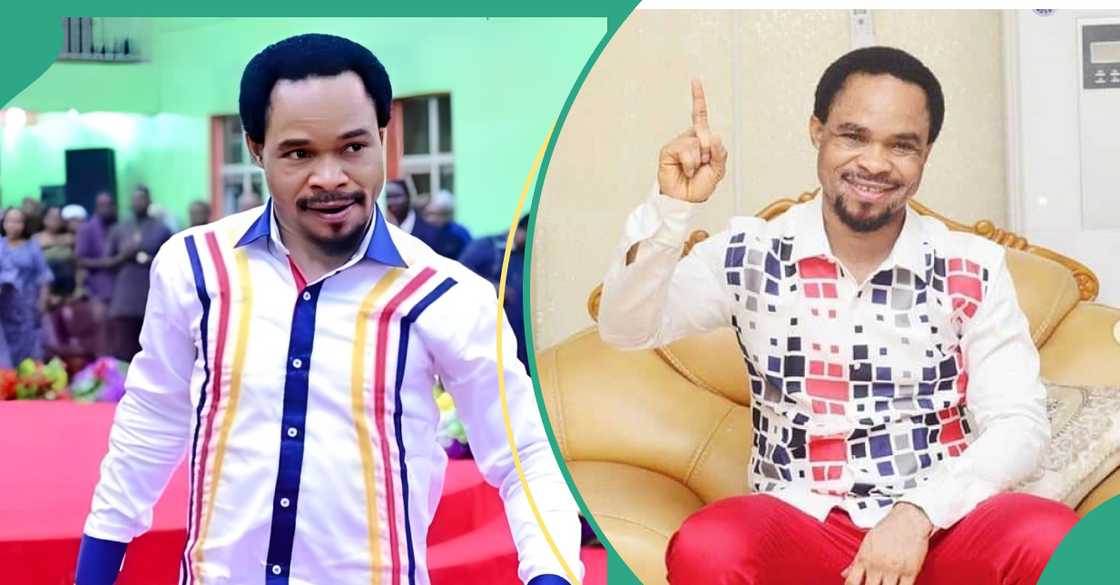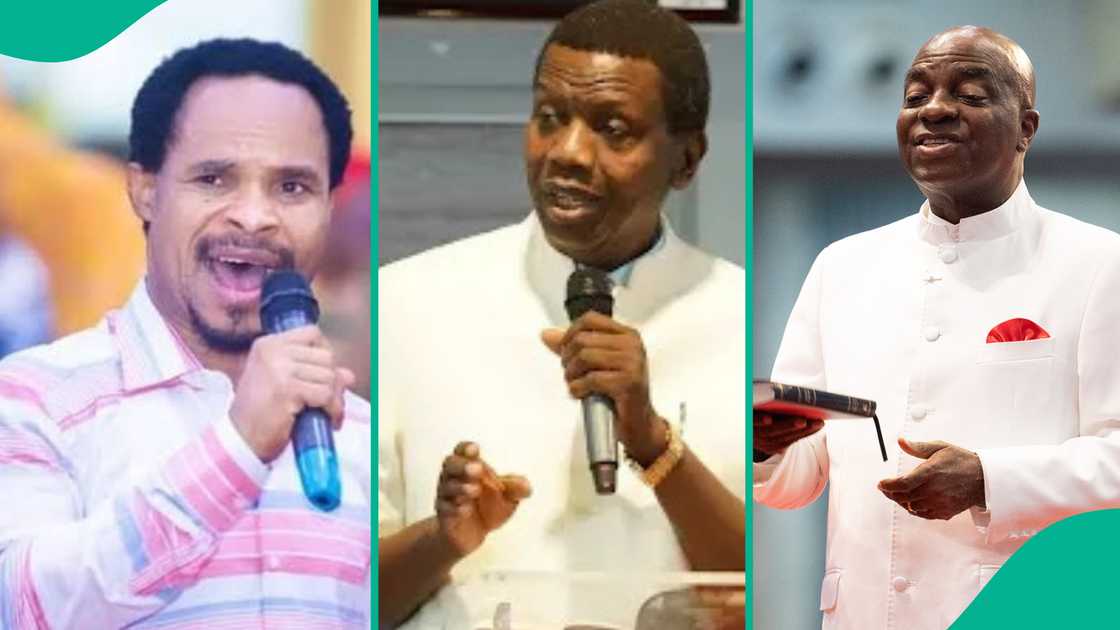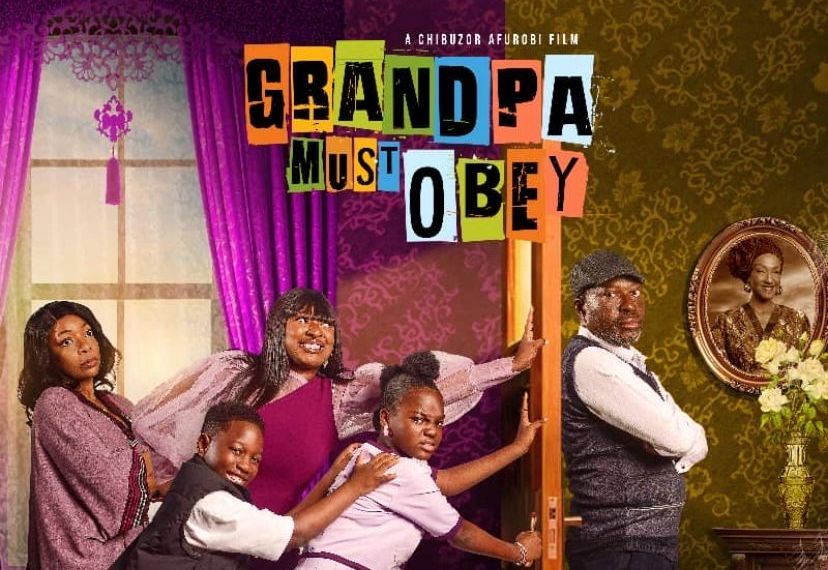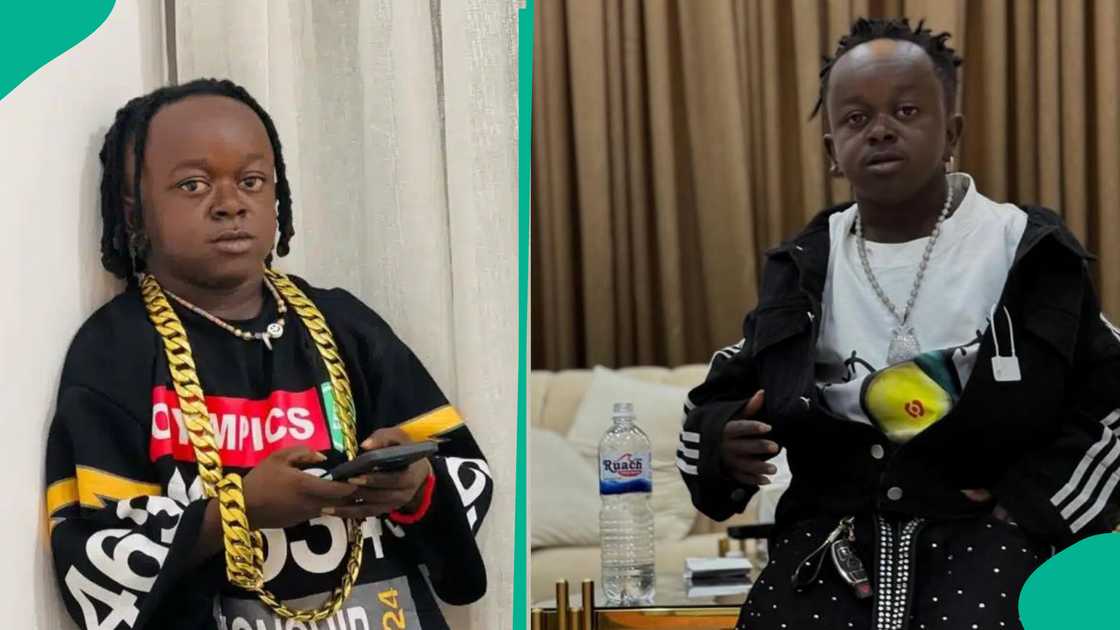In a sharp critique that has caught the attention of many Nigerians and West Africans, Prophet Chukwuemeka Ohanaemere—widely recognized as Odumeje—has openly criticized prominent faith leaders Pastor E.A. Adeboye of the Redeemed Christian Church of God and Bishop David Oyedepo of Living Faith Church. Speaking from his base in Anambra, Odumeje’s remarks have triggered a new wave of debate about the role of spiritual leaders in Nigeria’s turbulent times.
A recently circulated video shows the self-described “Indaboski” expressing dismay over the rising hardship facing Nigerian citizens. According to Odumeje, influential religious figures have remained silent while average Nigerians grapple with escalating economic pain. His comments, which quickly went viral, have prompted discussions about whether faith leaders should become more vocal about socio-political issues.
Reflecting on Nigeria’s political history, Odumeje brought up instances during the government of former President Goodluck Jonathan, when several pastors openly spoke against unfavorable government decisions—especially policies that aggravated fuel scarcity and triggered economic pressure on citizens. He noted that such bold criticisms have largely disappeared in more recent years, even as living conditions have continued to deteriorate.
He stated:
“See Adeboye then—he was complaining that fuel price was too high. But today, things are worse, and nobody is talking. Everything is costly every blessed day, yet they’ve accepted bad government as normal life.”
In the emotionally laden video, Odumeje highlights a specific source of national embarrassment: the comparison between Nigeria’s economy and that of neighboring Ghana. He observed that it is now “embarrassing” for Nigerians that Ghana, once seen as lagging behind economically, has managed to strengthen its currency while the naira continues to weaken. This comparison has resonated for many West Africans, especially given escalating inflation and cost of living worries across the region.
He declared:
“The worst government now is Nigeria. See where Ghana is insulting Nigerians. Their currency is even stronger than ours. We used to mock Ghana’s money before, but today, Ghana’s cedi can be compared to the dollar.”
Odumeje went further, insisting that religious leaders in Nigeria must leverage their influence to call out public officials and demand transparency and improvement, rather than remaining passive or silent. Throughout the video, he emphasizes the responsibility of clerics to advocate for their followers and the broader community.
He added:
“These are people who should be speaking up. Adeboye and Oyedepo should carry it strongly because people listen to them. Nigerians are suffering.”
Another central message in Odumeje’s address is to Nigerian youths. The prophet urges the younger generation to band together and “take back their country” from politicians, whom he described as “businessmen in disguise.” His assertion echoes a familiar frustration voiced by many young Nigerians who feel marginalized by successive governments that appear disconnected from the daily struggles of average citizens.
According to Odumeje, many people in Nigeria’s corridors of power have lost touch with the realities on ground, and it is the youth who suffer the consequences of broken promises and poor governance. The message from the Anambra-based preacher aligns with recent activism observed among Nigerian and West African youths in recent years, such as during the #EndSARS movement, where calls for justice and accountability took center stage nationally and internationally.
He said:
“The time has come for the youth to rise. They must stop depending on those who only think of politics as business. Nigeria belongs to all of us.”
Odumeje’s video, which has spread across social media, can be watched at
:
Reactions: Nigerians Respond to Odumeje’s Challenge
Reactions to Odumeje’s statements have flooded social media platforms, highlighting a range of perspectives from support to skepticism. We gathered a cross-section of public responses below:
@nobleoligbi:
“As for Adeboye, Tribalism means more to him than anything. If it was someone else from another tribe performing horribly as Tinubu, he’d put on his Protest Shoes.”
ruthies_collection91:
“But Oyedepo warned Nigerians not to vote this administration una no gree. After preaching Baba Dey sip him kunu for office because he no send anybody o”
@iam_eminic:
“Daddy Oyedepo has been a voice since day one…warned everyone about APC.”
@cossiechioma:
“Papa Oyedepo keep shouting out loud in 2015 not to vote Buhari in 2023 Papa and all his son’s in the ministry keep saying don’t vote for this administration. Na we no hear now we’re all facing the terrible consequences of our actions 😢May we not make this mistake again in the next coming election”

Source: Instagram
Mixed Opinions Within Nigerian Entertainment: Rita Edochie’s Response
Recent events have also stirred debate in Nigeria’s celebrity circles. Reportedly, actress Rita Edochie voiced her concern after a video surfaced showing actor Yul Edochie and his wife Judy Austin attending a service at Prophet Odumeje’s church. Clips from the event showed Yul on the altar, speaking highly of himself and his wife in the presence of the congregation.
Rita Edochie did not hide her disappointment, critiquing Odumeje for allowing the couple onto his altar. According to her, the move undermined the sanctity of the space and sent the wrong message at a time when many Nigerians are seeking righteous and principled leadership—from both their religious and entertainment icons.
This episode highlights how religious figures and celebrities intersect in Nigerian society, often blending public influence and controversy. The conversation continues about boundaries, respect for sacred spaces, and the wider influence of public personalities on national values and youth behavior.
The Broader Picture: Religious Leaders, Public Influence, and Nigeria’s Future
Odumeje’s challenge to his fellow clerics invites reflection on the duties of spiritual leaders in West Africa. Many experts argue that Nigeria’s large population of practicing Christians and Muslims means that clergy wield considerable power over social attitudes. According to Lagos-based sociologist Dr. Ifeanyi Okafor, “When spiritual leaders speak up, politicians tend to take notice—sometimes even more so than when civic activists protest. Their silence, intended or otherwise, is felt deeply by their followers.”
Local analysts note that while some religious leaders have become active in calls for justice—such as during times of fuel scarcity or political transition—others prefer to pray privately or avoid confrontation with political actors. There are also concerns about the politicization of the pulpit, with critics wary of blending spiritual authority with partisan commentary.
- Economic Statistics: According to a recent report by the National Bureau of Statistics (NBS), Nigeria’s inflation rate reached over 22% in 2023, with the naira depreciating steadily against the US dollar. In comparison, Ghana’s cedi has recorded occasional gains, sparking debates on prudent fiscal management in both countries.
- Youth Activism: With youth unemployment above 40% according to NBS data, the call for younger Nigerians to be more involved in the nation’s governance is more pressing than ever.
Ghanaian and other West African observers watch Nigeria closely, given the country’s outsized economic and cultural influence in the region. This dialogue about leadership, accountability, and youth empowerment resonates far beyond Nigeria’s borders.
Conclusion: Is It Time for Greater Accountability in Nigerian Religious and Political Spaces?
Odumeje’s outspoken remarks have reignited longstanding discussions about the balance between spiritual guidance and civic responsibility. As economic conditions remain tough, and as Nigerians continue to look to faith leaders for support or inspiration, the pressure for honesty, activism, and accountability is likely to mount.
What do you think—should religious leaders be more vocal about Nigeria’s political and economic challenges? How can Nigerian youths better mobilize for change? Drop your thoughts in the comments and don’t forget to follow us for more insightful updates on Nigerian and West African news!
For general support or media inquiries, contact support@nowahalazone.com.
Stay informed—join the conversation on Facebook, X (Twitter), and Instagram.










